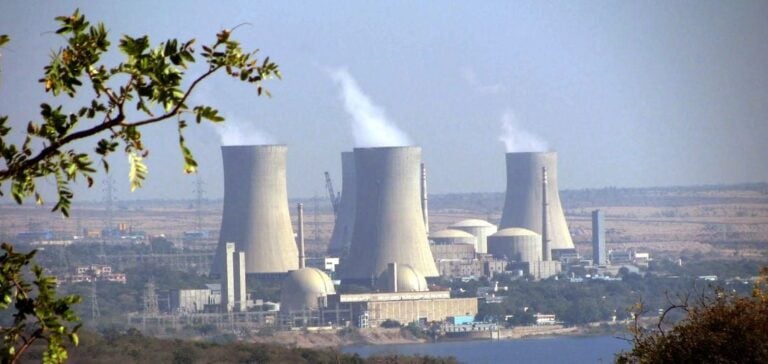Nuclear Power Corporation of India Limited (NPCIL), India’s state-owned enterprise responsible for nuclear power plants, has officially extended to September 30, 2025, the deadline for industrial proposals for the development of compact Bharat Small Reactors (BSR). This announcement, communicated on June 25, 2025, follows requests from several industrial groups for additional time to finalize their submissions. NPCIL also indicated that proposals would now be accepted on a rolling basis, allowing companies to submit projects continuously until the final deadline. These 220 MWe reactors, utilizing Pressurized Heavy Water Reactor (PHWR) technology, aim to address the specific energy requirements of energy-intensive industries.
An unprecedented industrial model in India
The framework proposed by NPCIL introduces an innovative industrial model where private companies finance, build, and maintain nuclear facilities. Once constructed, the facilities will be transferred to NPCIL, which will manage operations in compliance with national regulations. Investing companies will benefit from priority rights to use the generated energy, with the possibility of selling surplus electricity at regulated tariffs set by the Indian government.
Government ambitions and ongoing reforms
This initiative is part of a broader government strategy aimed at achieving a nuclear capacity of 100 GW by 2047, up from approximately 9 GW currently. The national budget for 2024–2025 includes a dedicated mission called the “Nuclear Energy Mission,” endowed with a budgetary allocation of 20,000 crore rupees, aiming to have at least five Small Modular Reactor (SMR) units operational by 2033. To facilitate these developments, significant legislative changes are underway, including amendments to the Atomic Energy Act and the Civil Liability for Nuclear Damage Act, intended to simplify public-private partnerships and attract increased foreign investments.
Technical development and operational timeline
Parallel to private industry proposals, NPCIL and the Bhabha Atomic Research Centre (BARC) are developing a prototype 200 MWe Bharat Small Modular Reactor (BSMR-200). According to an official statement by the Press Information Bureau (PIB), preliminary design of this pilot installation is complete, and detailed design is currently underway. The estimated cost for this first pilot reactor is approximately 5,700 crore rupees, with commissioning expected within 6 to 7 years after financial approval. These reactors will feature passive safety systems complying with standards set by the Atomic Energy Regulatory Board (AERB).
Industrial sectors targeted by the BSRs
The Bharat Small Reactors (BSR) primarily target industrial sectors that consume substantial amounts of energy, such as steelmaking, aluminum and copper metallurgy, as well as the cement industry. Currently, these sectors predominantly use coal-fired thermal power plants. NPCIL ultimately envisages deploying 40 to 50 BSR units over the next ten years, potentially reducing these industries’ dependence on fossil fuels while providing better cost control related to carbon emissions.
With this extended proposal deadline and enhanced flexibility in the submission process, NPCIL aims to broaden industrial participation in India’s nuclear program and foster new forms of collaboration between private and public entities.






















